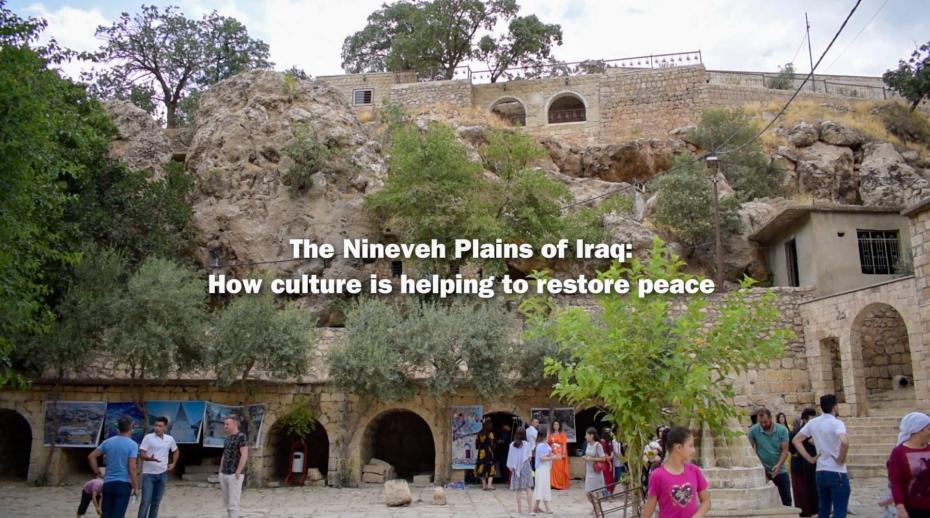
A new SIPRI short film launched today describes the role of cultural and religious practices in the post-conflict reconstruction of Iraq’s most ethnically and religiously diverse region.
‘The Nineveh Plains of Iraq: How Culture is Helping to Restore Peace’ tells the story from the perspective of minority groups living in the Nineveh Plains, weaving together footage from interviews with local people. The full interviews are now available on SIPRI’s YouTube channel.
The Nineveh Plains were occupied by the Islamic State (ISIS) between 2014 and 2017. ‘ISIS’s goal was to destroy the cohesion and cooperation that existed between all the ethnic and religious groups in the Nineveh Plains,’ says interviewee Sheikh Abd Ali Salih Al-Bayati of the Council of Turkmen Notables and Intellectuals.
During its onslaught, ISIS deliberately targeted minority communities, including Christians, Kaka’i, Shabaks, Turkmen and Yazidis, and destroyed their sources of livelihood, such as farmlands and livestock, and the heritage and sacred religious sites of these communities. Hundreds of thousands of people fled persecution and were displaced as a result.
Today, the region—known as ‘the breadbasket of Iraq’—is struggling to rebuild its infrastructure, homes and agriculture-based economy. Substantial reconstruction and reconciliation efforts are needed to address the social, cultural and economic impacts of the ISIS occupation.
The film highlights that post-conflict reconstruction involves more than simply rebuilding the physical infrastructure and the economy or establishing formal power-sharing arrangements. It stresses the importance, for the healing process, of restoring minority communities’ ability to observe their cultural and religious practices.
The film concludes that the Nineveh Plains’ path to recovery offers lessons for the rest of Iraq. In the words of researcher Shivan Fazil of SIPRI’s Middle East and North Africa Programme, ‘The long history of harmonious coexistence between the communities of the Nineveh Plains promises to be a vital element in reclaiming a peaceful and prosperous future.’
For editors
The film and interview series are part of the wider project ‘Cultural Restoration Programme for Northern Iraq’. In this project, SIPRI—in partnership with Purdue University, the University of Notre Dame, Indiana University and the University of Duhok—has been undertaking research since 2020 to better understand the needs of local communities in Nineveh in terms of reinstating cultural practices and to determine the impact of ISIS occupation on these practices. The project is funded by the United States Agency for International Development (USAID) through LASER PULSE. The findings will feed into an implementation phase that aims to help reinstate agro-based cultural practices in the Nineveh Plains.
About SIPRI’s films
SIPRI produces a variety of videos to cater for different viewing preferences and to serve as an alternative platform for providing insights on peace and security. Events are a core component of SIPRI’s outreach, and livestreams and recordings of SIPRI’s conferences and seminars are produced on a regular basis. Watch more films on SIPRI’s YouTube channel.
Media contact
For information and interview requests contact, Alexandra Manolache, SIPRI Media and Communications Officer (alexandra.manolache@sipri.org, +46 766 286 133).